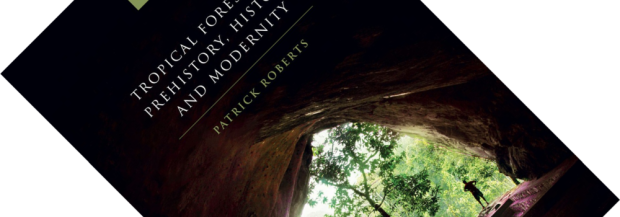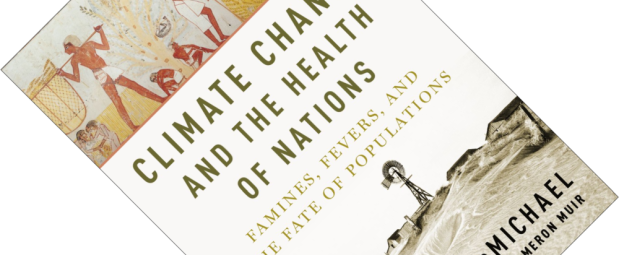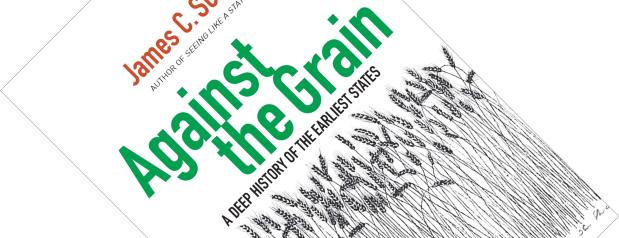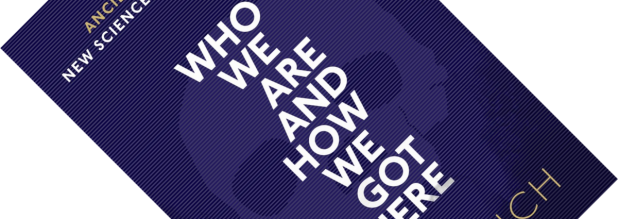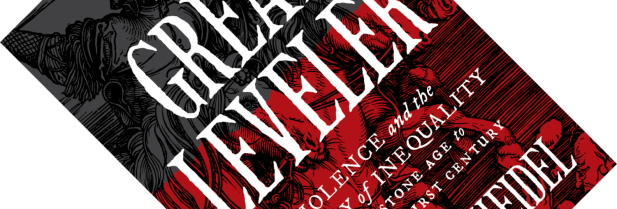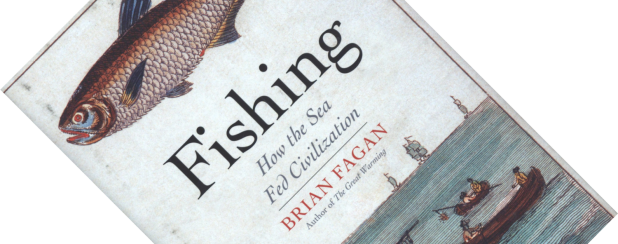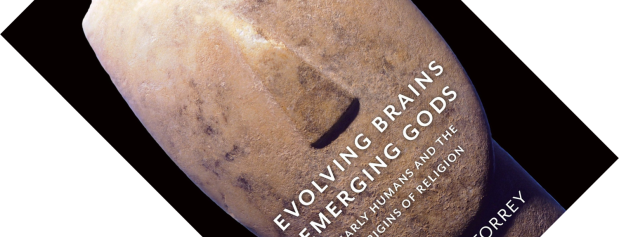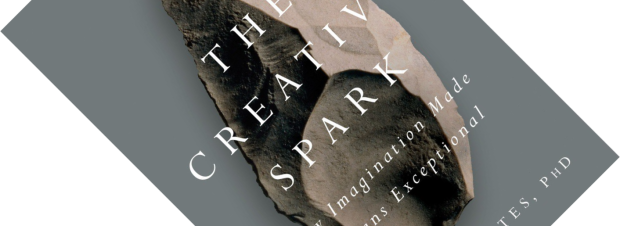“Why, of all the species that have ever existed, have only us humans reached this unparalleled level of social organisation?” Sounds familiar? I indeed opened my review of E.O. Wilson’s recent book Genesis: On the Deep Origin of Societies with almost these exact words. Where that book (quite literally) fell a bit short of the intended mark, biologist Mark W. Moffett here delivers a sprawling big history book that considers almost the same question. Perhaps this should not come as a surprise, for Wilson has been Moffett’s mentor.
prehistory
Book review – Tropical Forests in Prehistory, History, and Modernity
Primaeval, pristine, playground of Indiana Jones, home to ancient ruins and primitive tribes – nothing says wilderness more than tropical rainforests. They have had a firm grip on our collective imagination for centuries as the antithesis of civilization. But after reading archaeologist Patrick Roberts’s Tropical Forests in Prehistory, History, and Modernity, it seems my introduction is a load of lyrical rubbish. Synthesizing an enormous body of scientific literature, this book dispels the Victorian-era explorer-mystique to reveal a picture that is far more fascinating.
Book review – Climate Change and the Health of Nations: Famines, Fevers, and the Fate of Populations
When a history book leaves you reeling, you know that it has done its job properly. Climate Change and the Health of Nations is a grand synthesis of environmental history, charting the fate of civilizations and the links between climatic changes and the health of people. It is also a book that almost wasn’t.
Book review – The Palaeoartist’s Handbook: Recreating Prehistoric Animals in Art
Given that dinosaurs are no longer around, everything you think you know about what they look like comes from illustrations, models, movies, and merchandise. But how much of this is actually accurate, and how much of it is rather geared towards appealing to our sensibilities? Mark Witton is a man with a mission: to elevate the genre of palaeoartistry to one depicting scientifically accurate renditions, based on informed speculation and careful study of fossils and anatomy. Rather than a book that shows you how to draw a dinosaur, The Palaeoartist’s Handbook is a fantastically useful primer for both aficionados and budding artists into what actually can and should go into making good palaeoart.
Book review – Against the Grain: A Deep History of the Earliest States
History books tend to portray the transition of humans as hunter-gatherers to farmers – and with it the rise of cities, states and what we think of as civilization at large – as one of progress and improvement. But with Against the Grain: A Deep History of the Earliest States, political scientist and anthropologist James C. Scott challenges this narrative. That our switch to an existence as sedentary farmers impacted our health is something I was familiar with from palaeopathological findings, see for example Ungar’s Evolution’s Bite: A Story of Teeth, Diet, and Human Origins or Hassett’s Built on Bones: 15,000 Years of Urban Life and Death. But Scott tackles this subject from many angles, summarising accumulating archaeological and historical evidence to provide a fine counter-narrative.
Book review – Who We Are and How We Got Here: Ancient DNA and the New Science of the Human Past
You may have missed it, but archaeology is undergoing a silent revolution. The story of our deep history used to be based on skeletal remains, linguistics, and the analysis of objects and tools our ancestors left behind, but since about three years archaeologists have a new tool in their arsenal. The analysis of DNA from old bones, or ancient DNA. David Reich has been at the forefront of developing this technique and argues that it is rewriting most of what we thought we knew about the last 350,000 years or so of human history. Brace yourself, things are about to get complicated…
Book review – The Great Leveler: Violence and the History of Inequality from the Stone Age to the Twenty-First Century
Given that I predominantly review books on biology, you may wonder why a book on the history of economic inequality would be reviewed here. All I can say in my defence is that this biologist is nothing if not inquisitive.
Walter Scheidel’s The Great Leveler is a global deep history of inequality. Having taken a long, hard look at a huge range of historical evidence, Scheidel contends that only extreme violence and catastrophe have historically been able to bring more economic equality into the world.
Book review – Fishing: How the Sea Fed Civilization
Brian Fagan is a celebrated archaeologist and author who has written many books on the topic of environmental history. Several of these sit on my shelves, though I admit this is the first book by his hand that I have read. With Fishing, Fagan presents a deep history of fishing from the time of our human ancestors up to the present day, highlighting its overlooked role in the history of human civilization. His story spans the globe and pieces together a fragmented and complicated puzzle.
Book review – Evolving Brains, Emerging Gods: Early Humans and the Origins of Religion
As mentioned previously in my review of Barbara King’s Evolving God, religion is a pervasive phenomenon, and many scholars have put forward explanations of how, when, and why it arose. The arguments King put forth did not convince me that religion is anything more than a by-product of our evolution. Apparently, so did Darwin. Though believers often like to point out Darwin was a Christian too, he struggled to reconcile the two and ultimately lost his faith. American psychiatrist E. Fuller Torrey gracefully acknowledges this intellectual heritage and here updates this idea, putting forth the convincing argument that religion arose as a by-product of brain evolution.
Book review – The Creative Spark: How Imagination Made Humans Exceptional
With his new book, The Creative Spark, Agustín Fuentes, a primatologist and anthropologist currently at the University of Notre Dame in Indiana, boldly puts forth the idea that what makes humans special is creativity. The ability of humans to switch back and forth between considering what is, and dreaming of what might be, and to then put these thoughts into actions (often collaboratively), has brought us a very long way from our primate origins to the tool-wielding, world-shaping force of nature of today. Along the way, Fuentes wants to do away with some of the dominant narratives regarding human evolution today, or rather, he thinks most of them oversimplify things and lead to distortions in our thinking. Instead, he presents a new synthesis that places creativity front and centre stage as being the most important mechanism that helped us overcome challenges.


